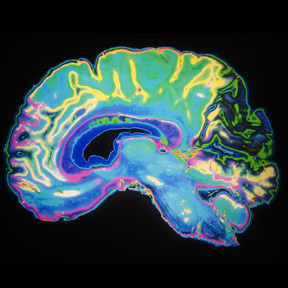Highlights
- •Insulin receptor (INSR) is essential for adult SVZ neural stem cell self-renewal
- •INSR deletion causes hyposmia with increased olfactory bulb neurogenesis
- •Hippocampal stem cells (and associated behaviors) do not require INSR
- •Glioblastomas overexpress INSR pathway components required for tumorsphere growth
Summary
The insulin receptor (INSR) is an evolutionarily conserved signaling protein that regulates development and cellular metabolism. INSR signaling promotes neurogenesis in Drosophila; however, a specific role for the INSR in maintaining adult neural stem cells (NSCs) in mammals has not been investigated. We show that conditionally deleting the Insr gene in adult mouse NSCs reduces subventricular zone NSCs by ∼70% accompanied by a corresponding increase in progenitors. Insr deletion also produced hyposmia caused by aberrant olfactory bulb neurogenesis. Interestingly, hippocampal neurogenesis and hippocampal-dependent behaviors were unperturbed. Highly aggressive proneural and mesenchymal glioblastomas had high INSR/insulin-like growth factor (IGF) pathway gene expression, and isolated glioma stem cells had an aberrantly high ratio of INSR:IGF type 1 receptor. Moreover, INSR knockdown inhibited GBM tumorsphere growth. Altogether, these data demonstrate that the INSR is essential for a subset of normal NSCs, as well as for brain tumor stem cell self-renewal.







